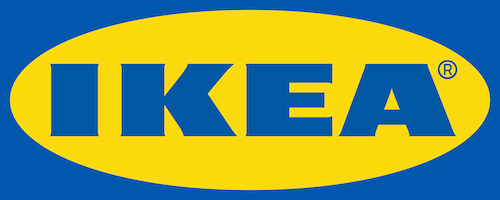Digital marketers today have access to a wealth of data that can reveal valuable insights into website performance, user behaviour, and overall online engagement. Google Analytics (GA) is an indispensable tool in this regard, providing a comprehensive collection of essential metrics to guide data-driven marketing decisions. With the ability to filter through vast amounts of data, marketers can identify meaningful trends and patterns that unlock opportunities for website optimisation, content improvement, and increased conversions.
In collaboration with Hewitt Matthews, this article aims to explore five key Google Analytics metrics that every marketer engaged in digital marketing should track and use as a foundation for well-informed strategies. These vital metrics encompass audience behaviour, user acquisition, engagement, conversions, and campaign performance, providing a holistic understanding of your website’s success factors.
Understanding Bounce Rate and Its Impact on User Experience
Defining Bounce Rate: Bounce rate refers to the percentage of single-page visits where users leave your website without interacting further, such as visiting another page or clicking on a call-to-action. A high bounce rate may signal ineffective content or poor user experience.
Identifying Reasons for a High Bounce Rate: Multiple factors contribute to a high bounce rate, such as slow page load times, unattractive web design, low-quality content, unclear messaging, or ineffective calls-to-action. By identifying the cause, you can take corrective action to improve user engagement.
Optimising Bounce Rate: Ensure that your website offers relevant, valuable, and easily digestible content that aligns with visitor’s expectations. Effective strategies to reduce bounce rate include enhancing website design, increasing page load speed, and utilising clear, engaging calls-to-action.
Analysing Traffic Channels for Targeted Marketing Efforts
Importance of Traffic Channels: Traffic channels denote the sources from which users arrive at your website. These can include organic search, paid search, referral, social media, and direct traffic. Knowing the origin of your website visitors enables you to tailor marketing strategies to target the most valuable channels effectively.
Organic Search Versus Paid Search: Organic search refers to users discovering your website through unpaid search engine results, while paid search results from users clicking on adverts. Analysing the performance of each channel offers insights into the effectiveness of SEO and PPC campaigns.
Leveraging Social Media and Referral Traffic: Monitor the impact of your social media marketing efforts on website traffic and user behaviour. Additionally, evaluate your referral traffic to identify valuable partnerships or opportunities for further collaboration to drive higher-quality leads.
Assessing Average Session Duration for Content Effectiveness
Importance of Average Session Duration: This metric measures the average amount of time users spend on your website during a single visit. A higher average session duration signals that users are engaging with your content or finding value in the information provided.
Factors Affecting Average Session Duration: Multiple factors impact average session duration, such as the quality and relevance of content, website design, and the user’s browsing habits. Assess these aspects in relation to your target audience’s preferences to maximise user engagement.
Improving Average Session Duration: Keep visitors on your website for longer by providing engaging, high-quality content that holds their interest. Improve navigation, utilise multimedia elements, and maintain visual consistency to encourage users to explore further and increase their session duration.
Evaluating Goal Conversion Rate for Website Performance
Setting Meaningful Goals: Implement clear, specific, and achievable goals within Google Analytics to measure your website’s success in driving desired outcomes. Examples of goals include newsletter sign-ups, lead generation form submissions, or product purchases.
Monitoring Goal Conversion Rate: Accurately track the proportion of users who achieve these goals, indicating the extent to which your website effectively fulfils your overall business objectives. A low conversion rate may reflect barriers hindering user actions or inadequate targeting of potential visitors.
Optimising Goal Conversion Rate: Aim to increase your conversion rate through various optimisation techniques, such as improving website design, refining calls-to-action, or implementing personalised user experiences. Test several approaches to determine which methods yield the most significant improvement in conversion rates.
Measuring Campaign Performance for Ongoing Success
Significance of campaign performance analysis: Monitoring the effectiveness of digital marketing campaigns, such as PPC, SEO, or social media marketing, is crucial for determining ROI, assessing the targeting strategies, and informing future marketing efforts.
Utilising Google Analytics for Measuring Campaign Performance: Within Google Analytics, you can monitor individual campaigns and retrieve crucial insights, such as conversions, bounce rates, and traffic channels. This granular data enables you to assess campaign performance and implement any necessary adjustments for optimisation.
Adopting a Data-Driven Approach: Exploit the wealth of insights yielded from Google Analytics to inform future campaign strategies and make data-driven decisions that consistently improve your digital marketing efforts.
Maximising Online Success with Hewitt Matthews’ Expertise
Google Analytics offers invaluable insights that empower digital marketers to make well-informed decisions for optimising website performance, enhancing user experience, and driving business success. Being adept at utilising these key metrics is crucial for navigating the fast-paced, ever-changing digital landscape.
Partnering with Hewitt Matthews ensures your digital marketing strategy is primed for success as we guide you through understanding and using Google Analytics metrics effectively to inform powerful, data-driven campaigns. Let us support your journey towards tangible results and exceptional online performance – together, we can achieve your goals and exceed user expectations. Contact the leading digital marketing agency in Portsmouth today.






